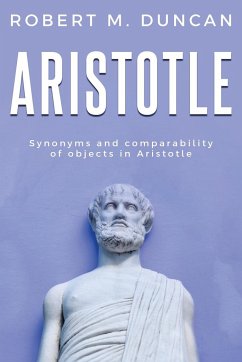Aristotle is committed to the thesis that the good is homonymous, or "spoken of in many ways." The homonymy of the good plays a major role in his critique of Platonism about goodness: he argues that there could only be a Form of the good if the term "good" signified a single nature, common to all good things. But since different kinds of good things require different accounts specifying what it is for them to be good, there can be no Form of the good. These points will, no doubt, be familiar to most students of Aristotle. What is less often recognized, however, is that Aristotle's commitment to the homonymy of the good is in tension with his tendency to think of goods as comparable with one another; in particular, with his tendency to think of the whole cosmos as a hierarchy of value. The problem I want to draw attention to is helpfully formulated as an inconsistent triad of theses that Aristotle endorses about goodness, homonymy, and comparability. We may call the three theses in question 1) "the homonymy of the good," 2) "the incomparability of homonyms," and 3) "the comparability of goods." I will call the inconsistency among these three theses "the incomparability problem." I argue that the problem is potentially quite severe; unless the inconsistency can be resolved somehow, it threatens the coherence of Aristotle's entire approach to value. Let us examine each thesis in turn.
